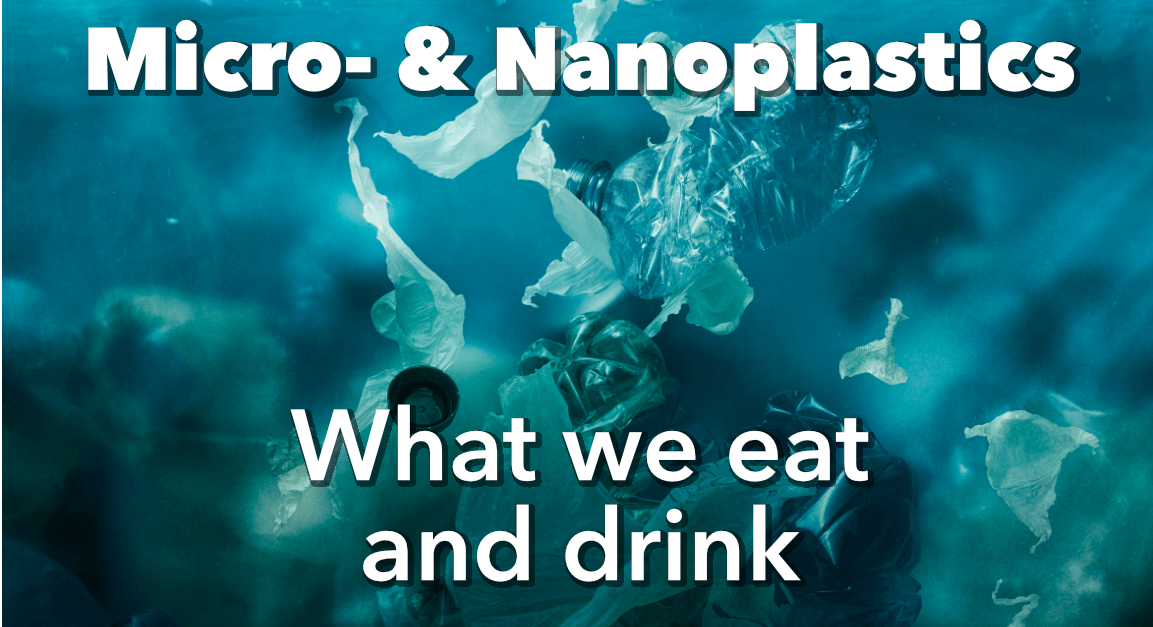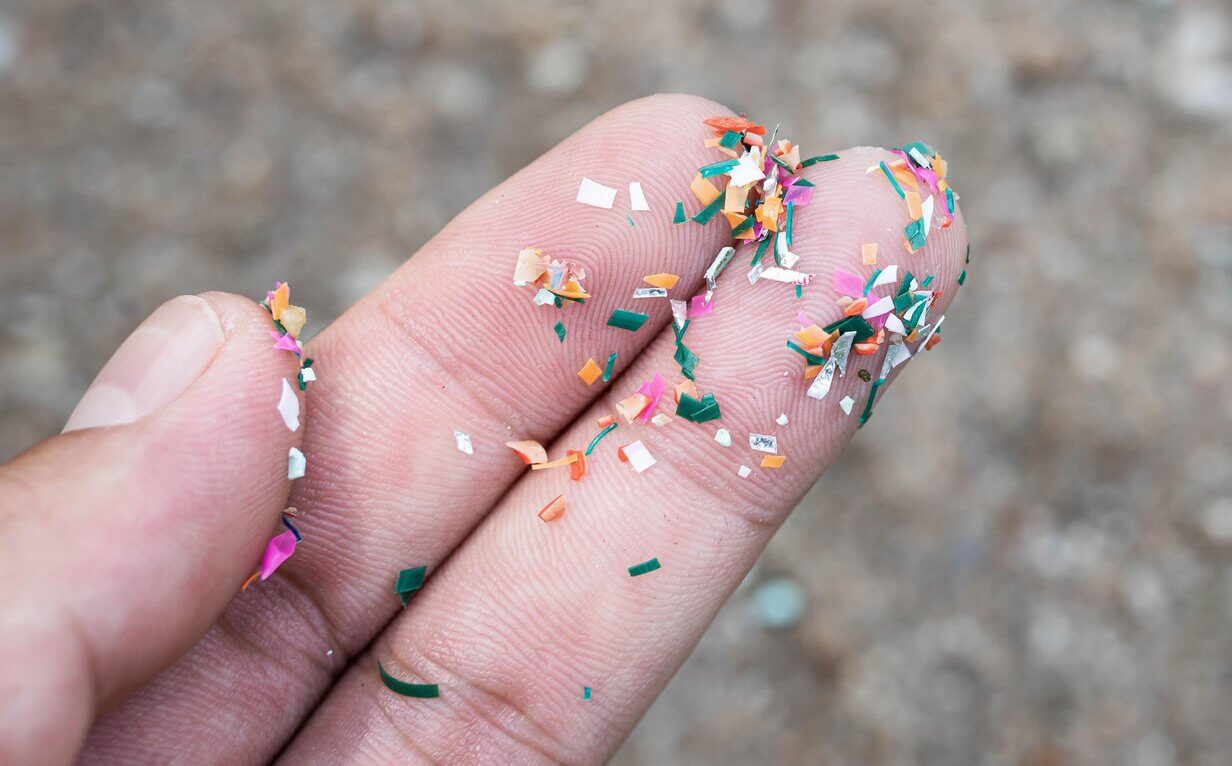In the air, in the soil and especially in the water
Many times more of them swim in our oceans than marine microorganisms: Fish mistake it for plankton, eat their fill ... and die. Components of it flow in our blood and urine and can significantly reduce male fertility. It can even be found in high-quality German tap water and in all tested German beer brands. We are talking about plastic, or rather micro- and nanoplastics, which we eat, drink and even absorb through our skin every day.

Micro- or #nanoplastics are, as the name suggests, small #plastic particles from cosmetic and microfiber products, from decaying larger plastic objects, from car tire wear, and much more. Their diameter is less than 5 milimeters, or between 1 and 1000 nanometers - smaller than a blood cell. Once in the #environment, #plastic breaks down into smaller and smaller pieces and it can take centuries for it to weather and finally degrade.
Due to a lack of long-term data, science does not yet know exactly how high the health risks are, but plastic components such as #plasticizers and #bisphenol A have long been considered potentially #carcinogenic or #toxic.
In Germany alone, the environment is polluted with around 330,000 tons of plastic particles under 5 millimeters each year. Most of this (about 35%) comes from washing synthetic textiles, another from skin creams, scrubs, shower gels, shampoos and other cosmetic products. These particles have one thing in common: they end up in #wastewater, in our #treatment plants and challenge us as #treatment plant manufacturers quite a bit!
The challenges are different. While we can remove up to 95% of microplastics from wastewater with our modern #wastewater treatment systems and the latest #wastewater treatment processes, the chances of removing even the smallest particles from wastewater are much worse. Water-soluble flocculants could ensure that the wastewater can also be cleaned of these tiny particles.
Of course, all the #microplastics removed from the wastewater eventually settle in the #sewage sludge. And it is precisely here that an important environmental question is decided: what becomes of the sewage sludge? If, as is so often the case, it is spread on fields as fertilizer, the microplastics that have been laboriously filtered out will once again end up in the environment and in the groundwater. In this respect, the following applies: Such sewage sludge no longer has any place in the environment and must be destroyed or disposed of once and for all.

What can we do about the inundation of microplastics?
The micro- and nanoplastic problem must be tackled from various sides. There are many approaches, as well as demands from environmental associations. But unfortunately, politics has a hard time with bans and stricter obligations in this area. However, plastic bans, plastic deposit systems, stricter labeling requirements and the obligation to destroy sewage sludge would be an important first step. #Filter systems in textile cleaning processes should be indusrieverpflichtend. And for ourselves, there are also a number of simple tips to ensure that our beautiful blue planet with its overwhelming nature does not become a cheap plastic ball:
- Don't throw #plasticwaste carelessly into #nature.
- Separate #waste
- Buy long-lasting products instead of #disposable items
- Use products without microplastics as much as possible (e.g. cosmetics and care products)
- Avoid #plastics as much as possible
- Use detergents sparingly, the plastic particles they contain are not degradable
- Do not wash too often, synthetic fibers end up in wastewater with every wash
- Avoid #plastic packaging and use e.g. glass containers or cloth bags
- Drink water from glass and not #plastic bottles
Clean water, free of micro- and nanoplastics, is an essential part of saving our planet and an important part of solving the climate crisis!
If you want to learn more about the topic, feel free to click here.
Author: Uwe S. Meschede
Would you like to be regularly supplied with new, interesting and lively contributions? Then register here!